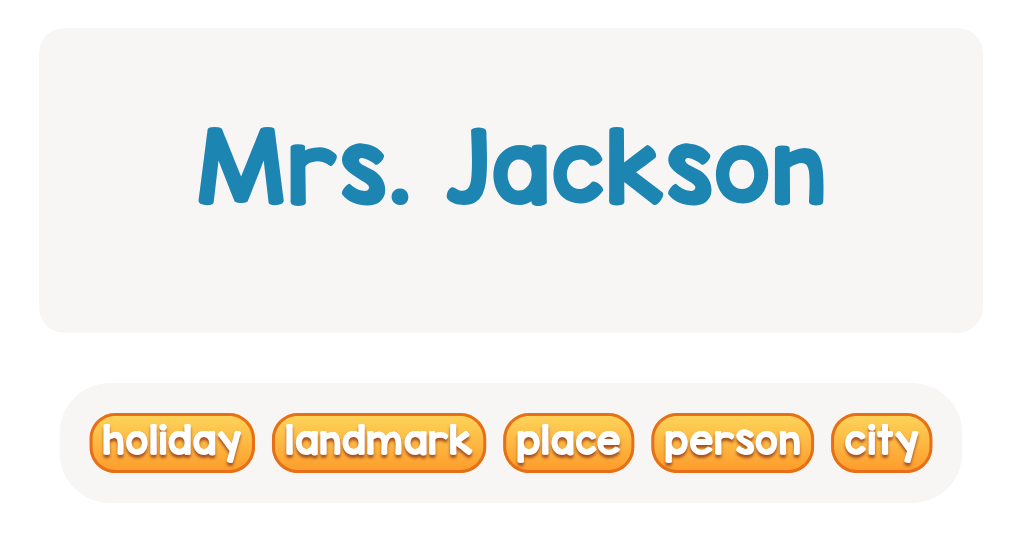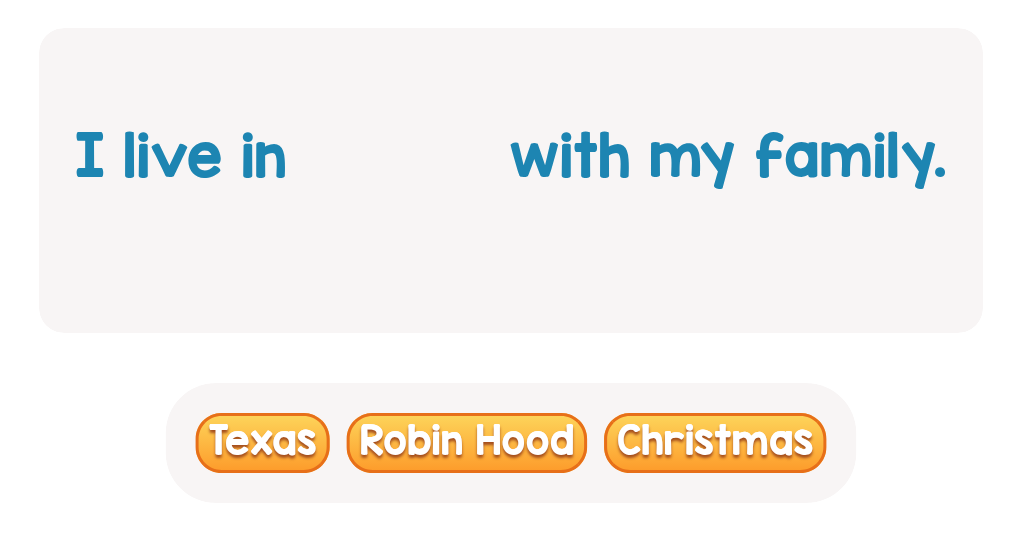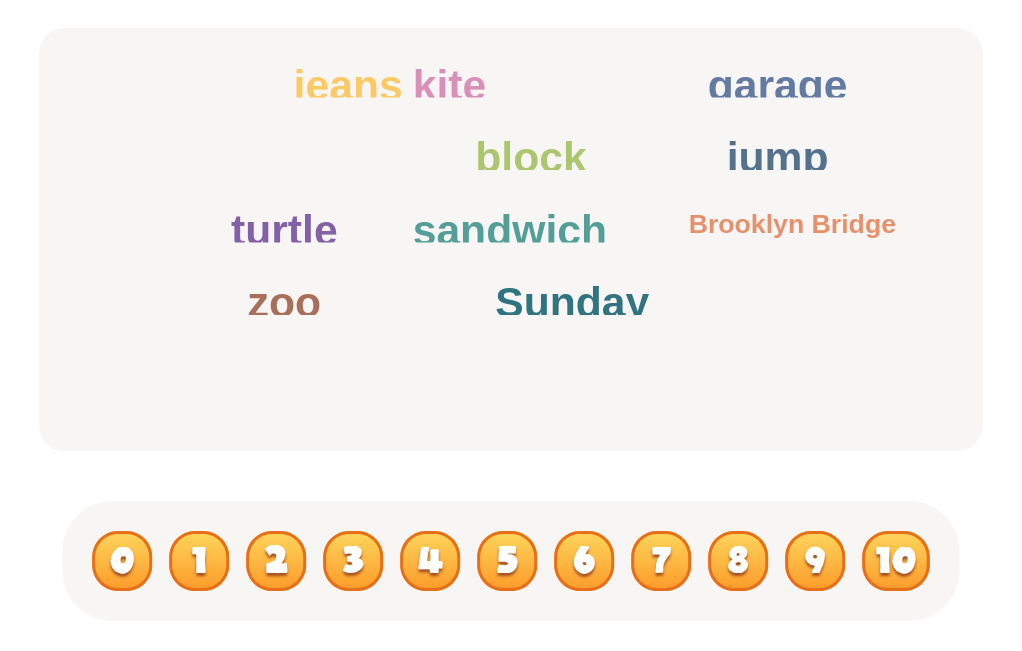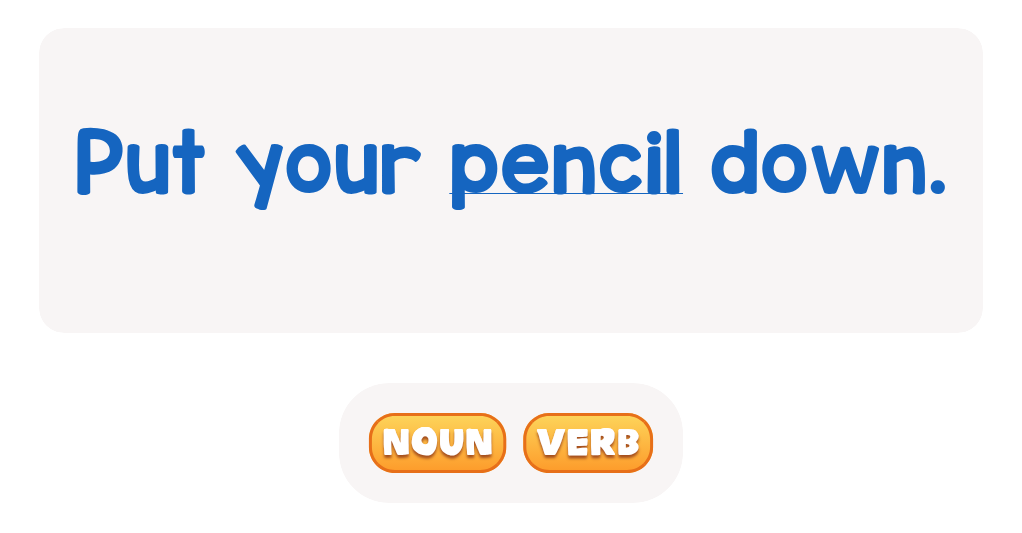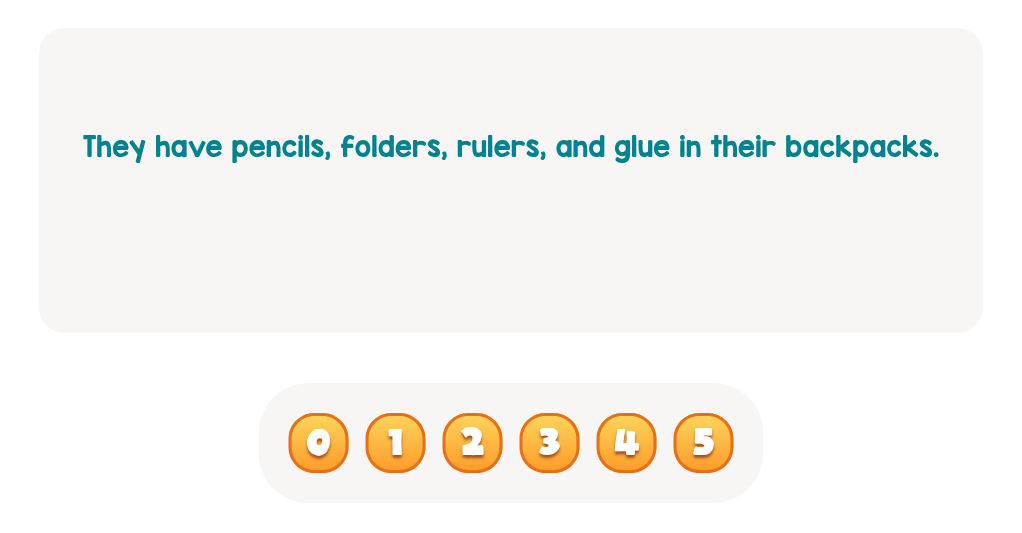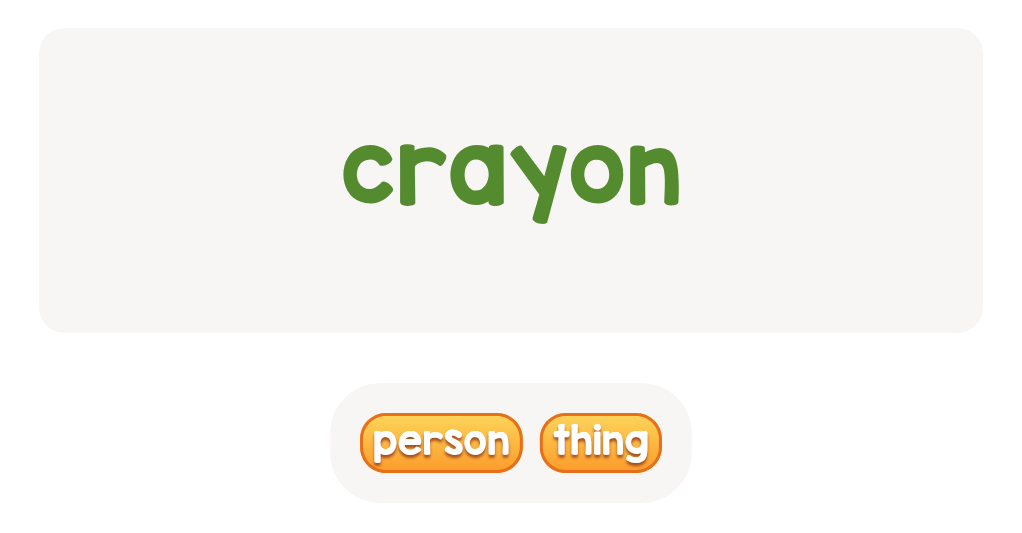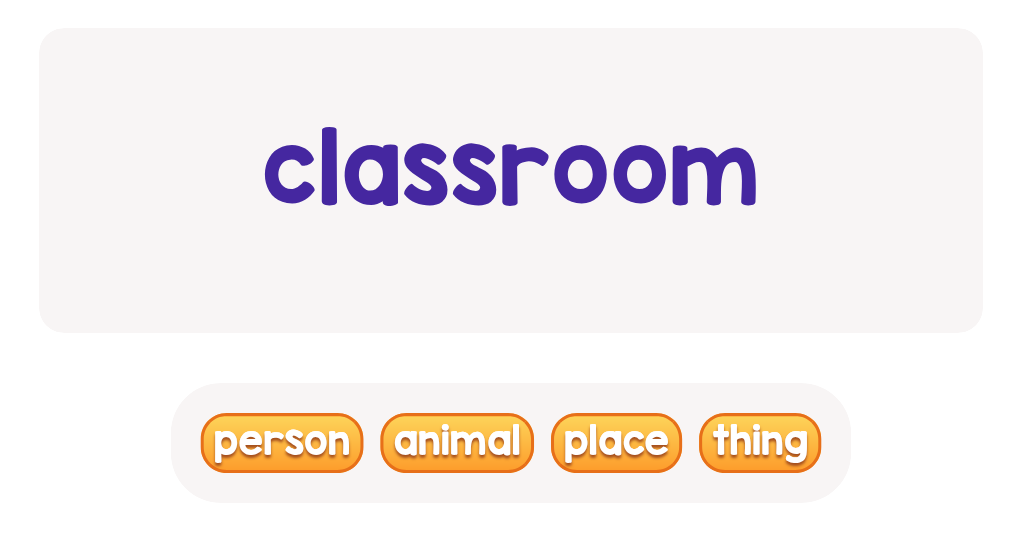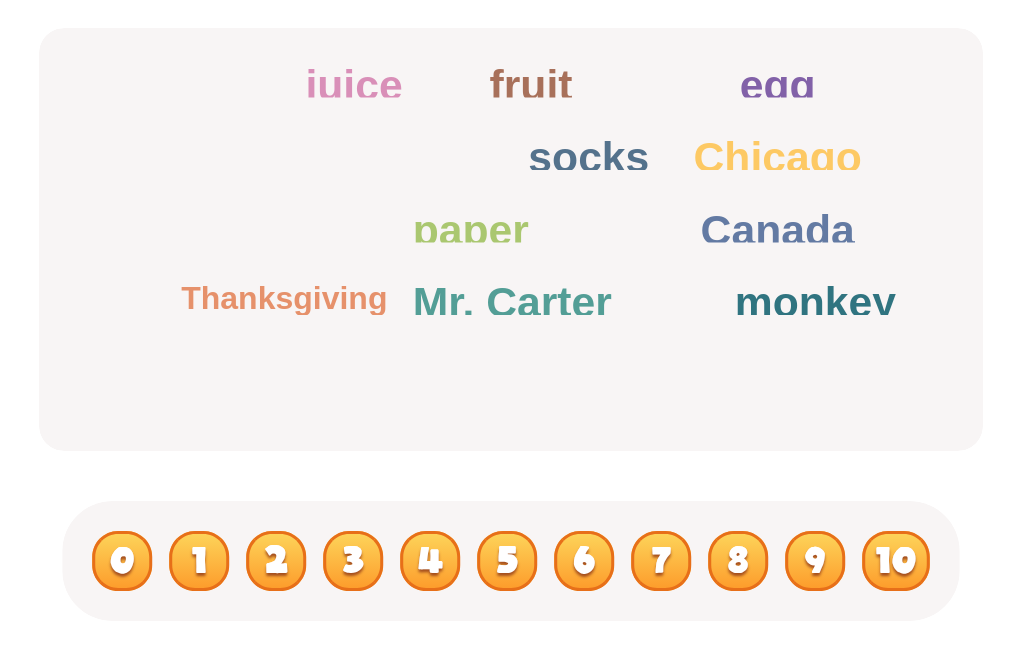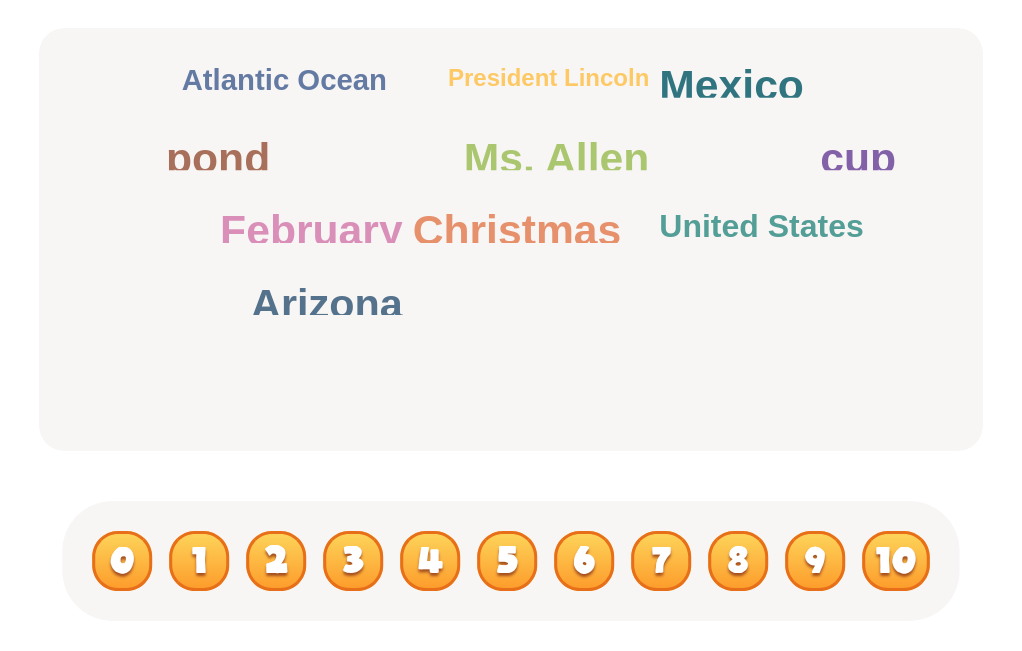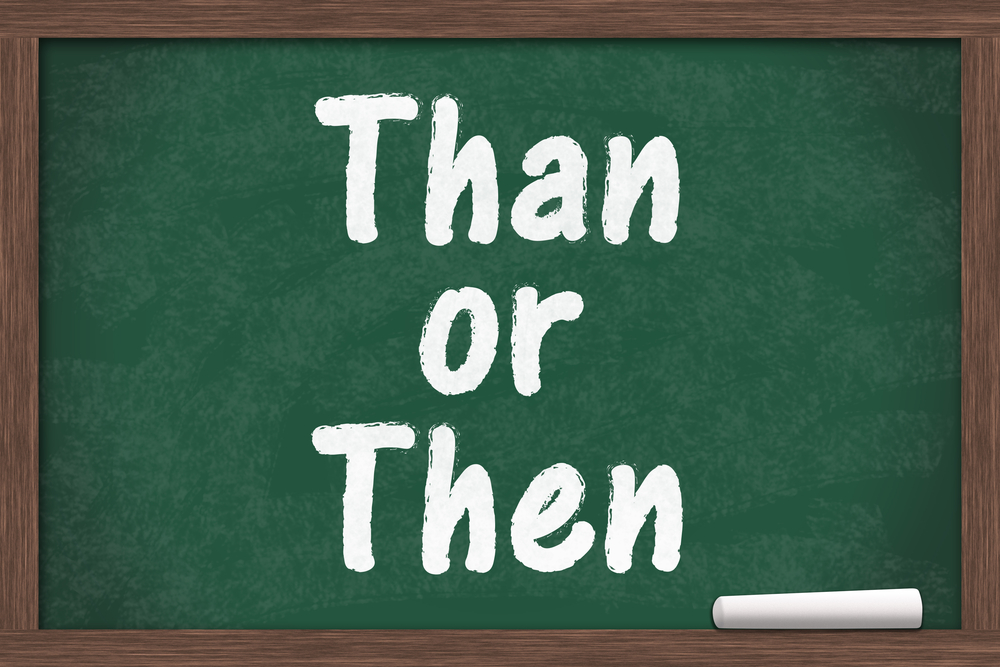Word Recognition Grammar Worksheets for Ages 8-9
7 filtered results
-
From - To
Enhance literacy skills in children aged 8-9 with our engaging Word Recognition Grammar Worksheets! Designed to promote reading comprehension and vocabulary development, these worksheets offer interactive exercises that focus on recognizing and using words correctly within sentences. Students will learn to distinguish between different parts of speech, enhance their grammar knowledge, and gain confidence in their writing abilities. Packed with fun activities and colorful illustrations, our worksheets make learning enjoyable and effective. Perfect for classroom use or homeschooling, these resources will help your child master word recognition and improve their overall language skills. Explore our collection today and support your child's educational journey!


Phonics and Word Recognition: Assessment 3 Worksheet
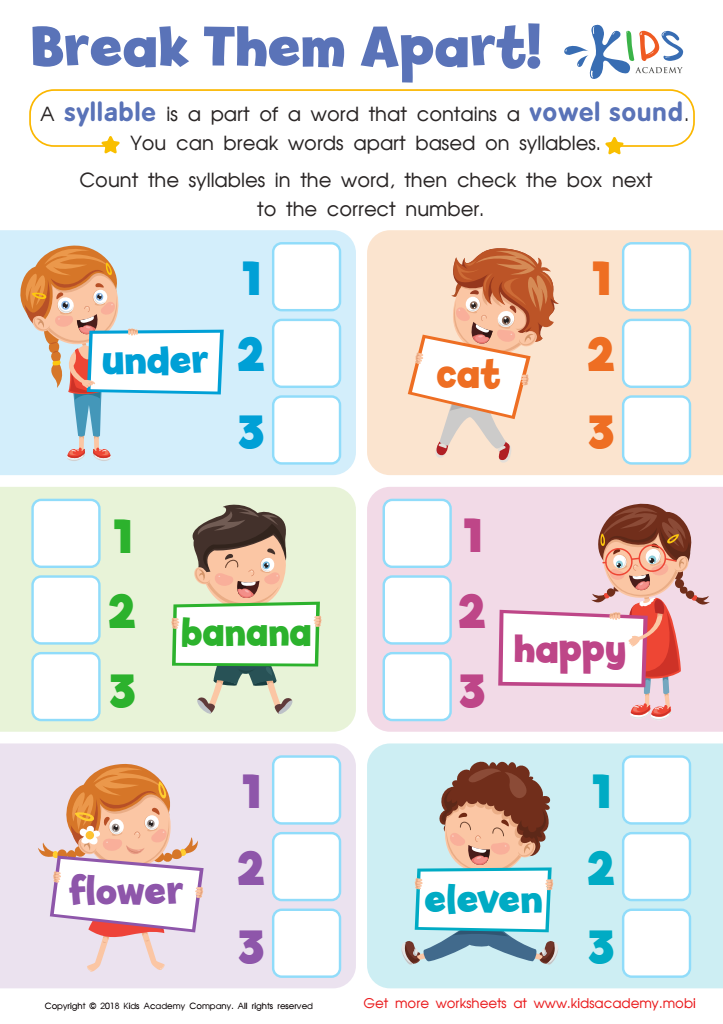

Reading: Break Them Apart Worksheet
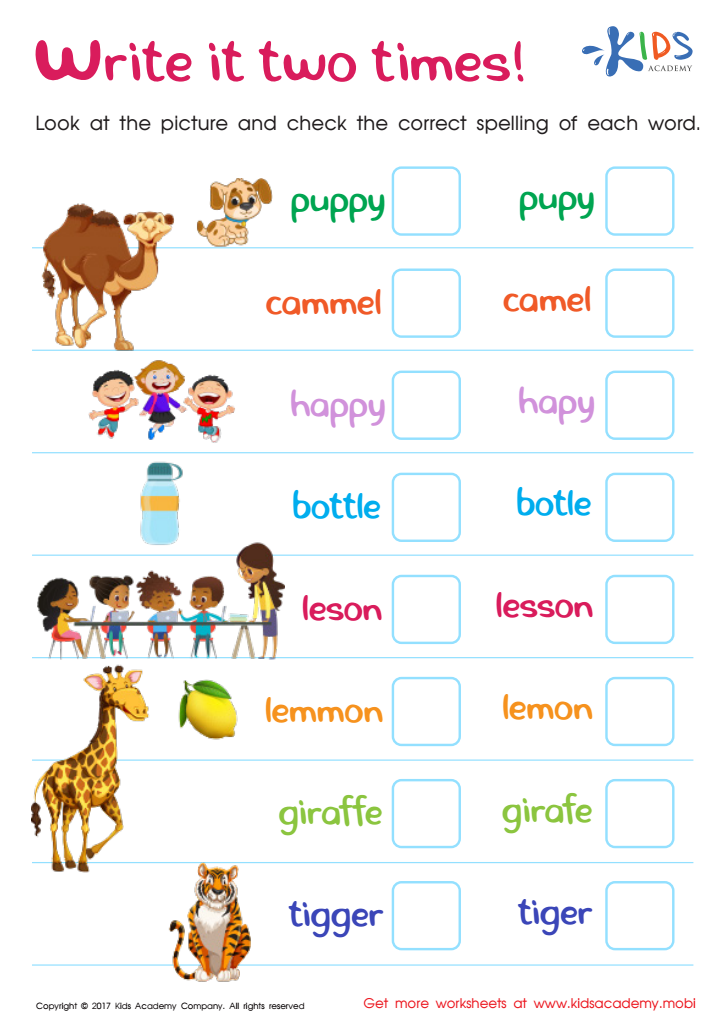

Spelling Practice Worksheet
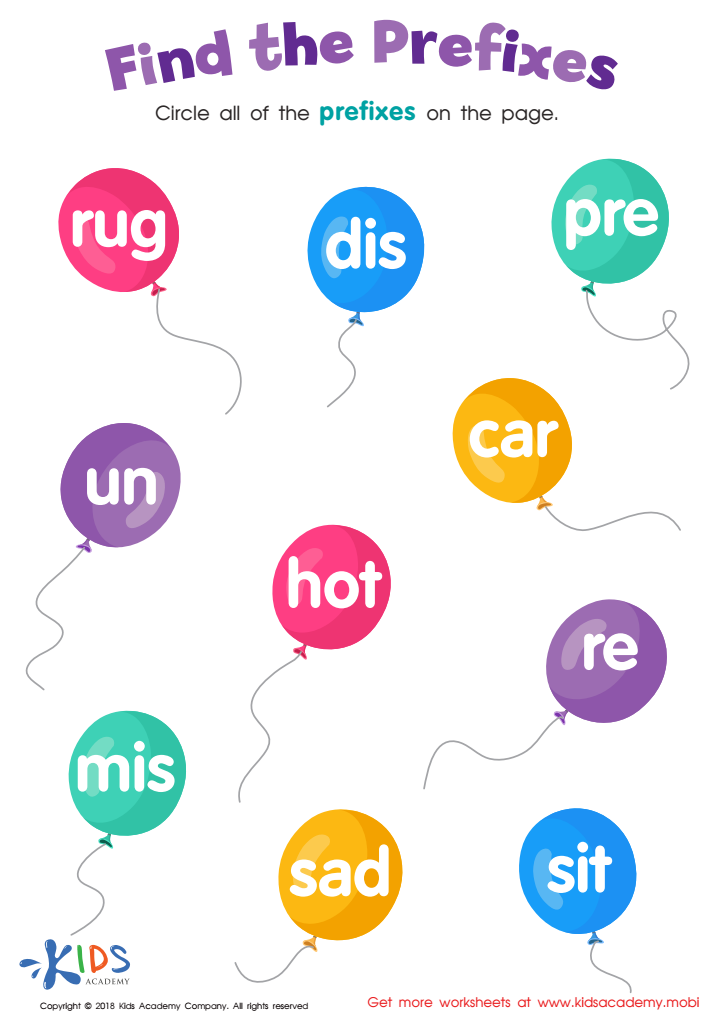

Reading: Find the Prefixes Worksheet
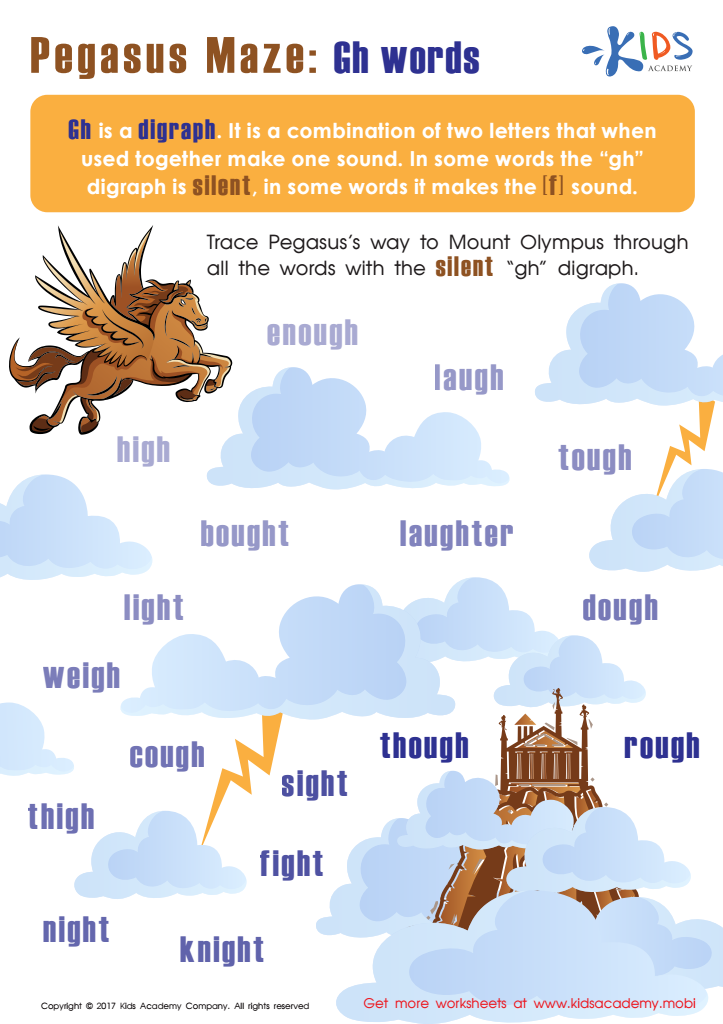

Pegasus Maze: GH Words Worksheet
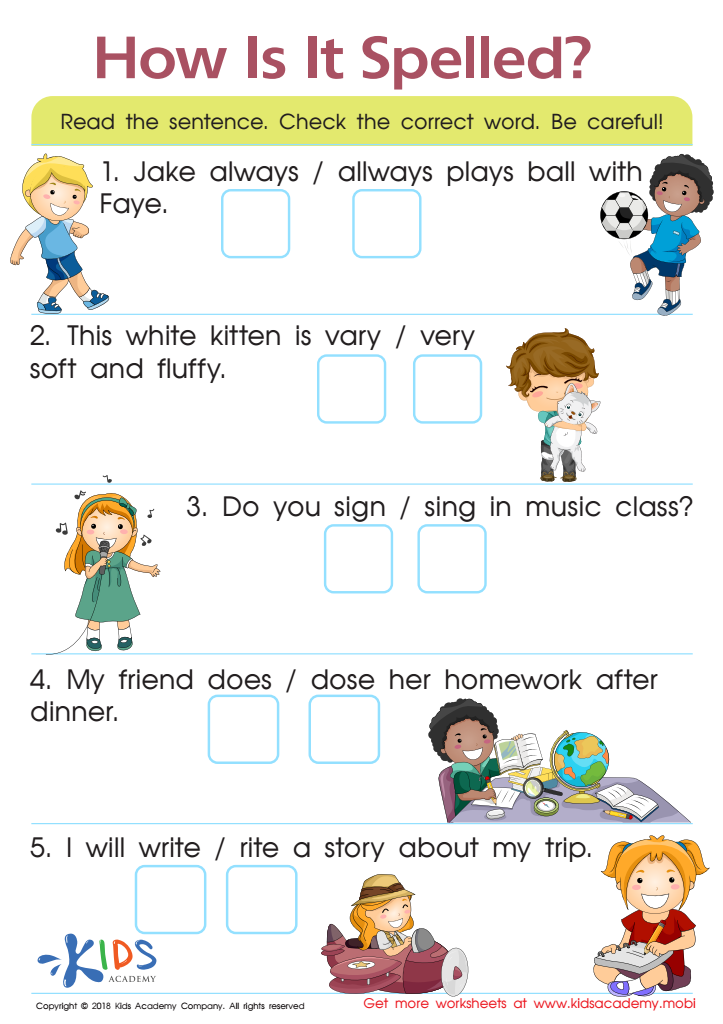

How is it spelled? Worksheet
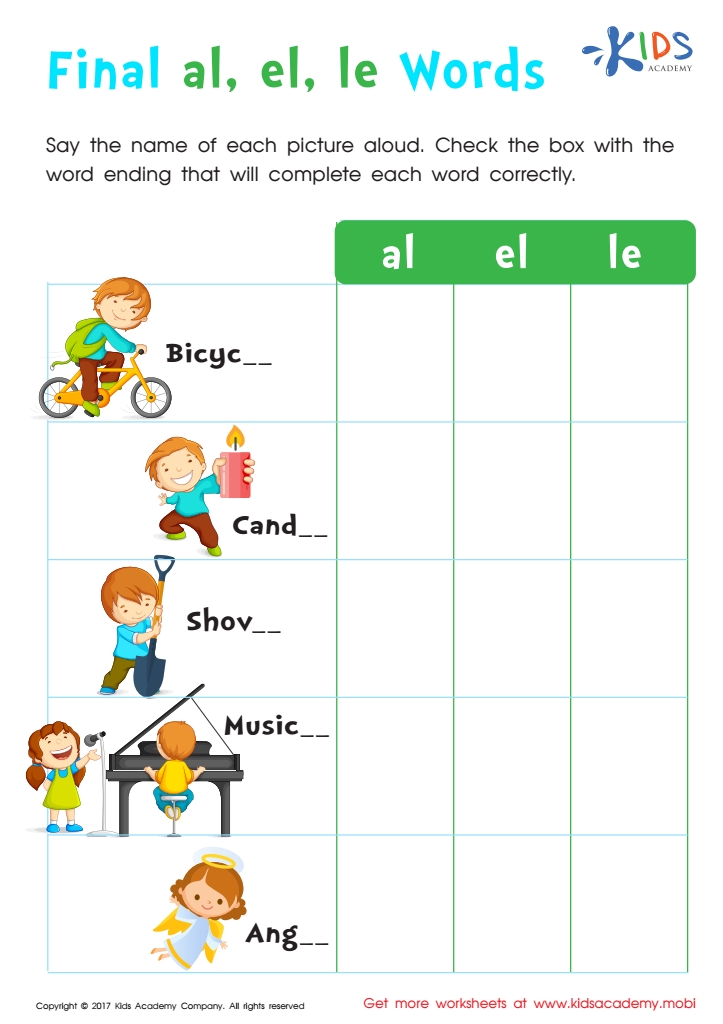

Spelling Words Ending with –le, –el and –al Worksheet
Word recognition grammar is crucial for children aged 8-9 as it serves as a foundation for their reading and writing skills. At this developmental stage, students begin to encounter more complex texts, and a solid grasp of word recognition enhances their ability to decode, comprehend, and engage with diverse materials. When children recognize words quickly and accurately, they can focus more on understanding the content, leading to improved literacy skills and academic performance.
Furthermore, effective word recognition helps build students' confidence and fosters a love for reading. When children understand grammar patterns and recognize words, they become more fluent readers. Teachers and parents should be aware that weak skills in this area can lead to frustration and disengagement.
Understanding and utilizing word recognition grammar also helps with vocabulary expansion and the development of critical thinking skills. By encouraging children to explore various texts, adults can support them in making connections between words and concepts, which is vital for their cognitive development. Parents and teachers play a pivotal role in nurturing these skills through consistent reading practices, vocabulary exercises, and engaging in discussions about grammar, ultimately preparing children for future academic success and lifelong learning.
 Assign to My Students
Assign to My Students
